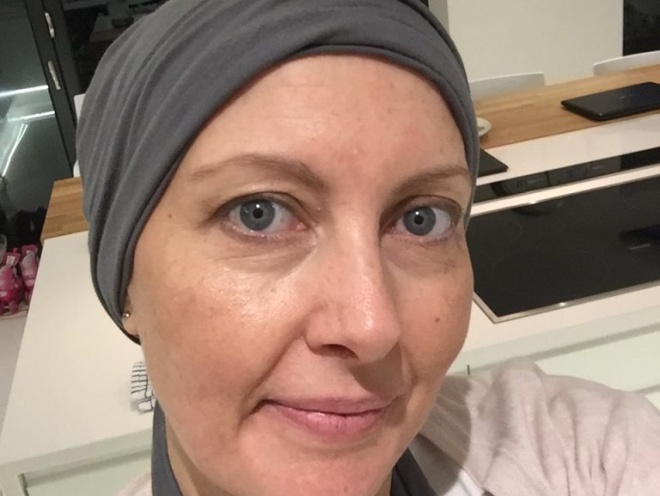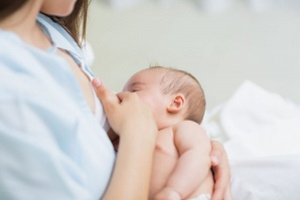Sara Liyanage was a busy working mum who juggled her job, the school run, housework and play dates – until she found out she had breast cancer. She tells us why she wrote a book, Ticking off Breast Cancer, and how other mums with breast cancer can get help and support.
Did being a mum affect how you felt about your cancer diagnosis?
Yes absolutely. When receiving a cancer diagnosis there is an immediate fear for yourself and your future. There is, of course, a terrible fear of dying and what this means for you. A sadness about all the things you might miss out on and the fact that you’re not ready to leave your life behind.
But being a parent magnifies that fear by an infinite amount because the fear no longer becomes about you, but about your children. You worry about what will happen to your children if you die. How would they cope with the death of their mother? How would they find their way in life without the unconditional love and support of their mother?
Having cancer as a parent adds an extra layer of fear and worry to an already traumatic situation.
Even with a good prognosis, there is a constant worry about how your illness will affect the children. You worry about the upheaval to their lives, the fear that they will be feeling and the long-term impact of going through a stressful time at such a young age.
How did you find was the best way to talk to your children about having cancer?
For us (and I recognise that every parent is different) we were open and honest with our children from the start. Children are actually very aware of everything that goes on around them. Children can pick up on the fact that something isn’t right at home and we didn’t want our children to sense something was going on.
We wanted to get the balance right between being honest and not instilling too much fear. We also wanted to dissipate some of the fear surrounding cancer and make our home a place where everyone could talk openly about cancer, the treatment I was going through and ask any questions or talk about any fears that they had.
So, we explained that there was a lump of cancer cells that the doctor was going to take out and then, to make sure that the cancer cells didn’t come back again, I was going to have some very strong medicine called ‘chemotherapy’ and something called ‘radiotherapy’.
My children were 9 and 11 when I was diagnosed. Their exposure to cancer had been from the TV and films. They knew of cancer and they thought that people who had cancer, went bald and died. We had to educate them that this wasn’t quite right. The question, “are you going to die?” was a tricky one to deal with.
Yes, I had been given a good prognosis but as there are no one hundred percent guarantees with cancer, we didn’t want to promise that I wasn’t going to die. But at the same time, we didn’t want them to have to live in fear that I was going to die.
So, we told them that the doctors had told me that I wasn’t going to die from it and that the doctors were going to do everything they could to stop it from coming back.
For other women going through it, how can their partner best support them?
Aside from the obvious practical support (for example, helping with the children, doing more around the house with cooking and the laundry, being there for as many of the hospital appointments as possible etc.) the best support that a partner can give is to be understanding.
Getting cancer really is like your whole world falling apart. From the minute you are diagnosed, you’re riding a rollercoaster of emotions.
Sometimes you feel positive, other times you feel desperately negative. Sometimes you feel scared and anxious, other times you feel capable. Sometimes you feel in control and other times you feel overwhelmed.
You need your partner to understand that these are valid feelings and that it is perfectly normal for you to be experiencing them. You don’t want a partner telling you to pull yourself together, and you don’t want a partner going over the top with sympathy and cups of tea. You need your partner to be realistic and understand – as much as he/she can – what you’re going through.
As well as her powerful book, Ticking off Breast Cancer, Sara’s website has practical and emotional support and advice from diagnosis to life after cancer: tickingoffbreastcancer.com
When you felt horrendous after chemotherapy, what were the things that helped get you through?
Well, there were the practical things that my family and friends did which helped enormously. We received meals for the freezer, help with the school run, grocery deliveries, a hand with the ironing and so much more invaluable practical support that we couldn’t have coped without.
I received a huge amount of emotional support and kindness from so many people.
When I was feeling at my worst after each chemotherapy session, cards, texts, phone calls and visits were so important. It showed that I mattered to people and that they were thinking of me as I was going through this horrific experience.
I think we all need to know that we are cared about, and so to receive all this compassion at such a difficult time really showed that my friends and family cared about me.
If you’ve never been affected by cancer yourself and are struggling to know what to say to a friend who has cancer, what is the best thing to say?
This is easy. Just tell them how you feel. Say that you just don’t know what to say or do, but that you’re thinking of them. Try not to treat them differently. They are still the same person – they’re still your friend with whom you have coffee, go shopping and have a laugh.
Continue to invite her along to the things that you usually do together, but be aware that you’ll probably need to adapt some of the usual things to take her treatment into account. You’ll also have to be patient with her and understand that she might cancel at the last minute. And instead of, say, going out for a few glasses of wine in the evening, you might need to take lunch and friends to her house instead.
What are the best ways to help another mum you know who has cancer?
There are plenty of ways to help another mum who has cancer. You don’t need to be a best friend to offer help. In fact, when I had cancer, some of the help came from people who weren’t my closest friends at the time – they are now though!
And we all know how hard it is to ask for help so my main piece of advice is not to say, “How can I help?” but rather offer something in particular by saying, “Can I help you by doing X Y Z?”
Here are some of the ways you could help out:
Offer help with the children
This is so important. Yes, some mums have parental support and their partners are around to do a lot of the childcare, but there are some mums who don’t have any family nearby and whose partners are out at work for a large proportion of the day.
Regardless of their support network, I can guarantee that a mum going through cancer treatment will appreciate you offering to help with the children. You could offer to take and collect the children from school. A friend of mine took it upon herself to set up a school run rota involving a few mums. This was one of the best things that people did for us.
You could also offer to have the children over to your house after school, at weekends and during school holidays. Even an hour here and there will give her an invaluable break. Consider offering to collect the children and drop them back so the mum doesn’t have to worry about getting her children to and from your house.
While you’re making family dinner, double up
Make two lasagnas or two casseroles or two pasta bakes. Then take one of them round to the mum who has cancer. She can pop it in the freezer for a day when she is feeling too dreadful for cooking.
When you’re popping to the supermarket or the local high street, send a text asking if she needs anything.
She might need a pint of milk or a packet of paracetamol, but the trip out to town would be too much for her at that particular time on that particular day.
Offer to take her to her hospital appointments
She might need someone to drive her to and from appointments or even someone to come into an appointment and help take a note of what the doctors say (she’ll be focusing on asking the questions and listening to the responses rather than writing it all down). If she’s having chemotherapy or radiotherapy it might be worth setting up a rota of friends to take her to these appointments.
What did you learn about family life having been diagnosed with cancer and going through chemotherapy?
Before I had cancer I was travelling into London and working four days a week while running the family home and being a full-time mum to my two children. It was, like many other mums, a full-on incredibly busy life.
I was constantly running from one thing to the next: from home to school to work to school to home to ballet to cubs to homework to dinner to bed. Every day. And at the same time, I was also doing the food shop, tidying the house, doing the laundry, emptying the dishwasher, planning the next holiday, replenishing the home with loo roll, batteries and doing everything else that the family needed me to do.
Then I got cancer and the treatment I went through caused me to slow down. I took a leave of absence from work and for a lot of the time I was too unwell to keep on top of all the household chores. But it was okay.
It made me realise that I didn’t need to rush around. I didn’t need to put pressure on myself to have the perfect house and a perfect life: the most important thing in life was my family and as long as I was present and supportive of my children and husband, that was the main thing.
In terms of home life, this means putting less pressure on myself to have the ‘perfect life’. It doesn’t matter if the laundry doesn’t get done today. It doesn’t matter if I don’t get around to emptying the dishwasher until after lunch. It doesn’t matter if my children have beans on toast for tea rather than a hearty home-cooked casserole.
Yes, of course, as mums, we need to do our very best for our family. But we don’t need to do this at the expense of our own physical and mental health. If things are getting too much or too overwhelming then we need to press the pause button, re-set ourselves, then start again but at a slower, kinder pace.
Sara's recommendations for support and information
There are many useful resources available for women going through cancer. Part of the aim of my website www.tickingoffbreastcancer.com is to signpost women to these resources so that they don’t have to go on Google at a time when googling can be very stressful.
For breast cancer, I would highly recommend the following websites:
www.breastcancernow.org for information and support (they have a super helpline which is free).
www.breastcancerhaven.org.uk for their resources on mindfulness, meditation and relaxation in general.
For all cancers, I would highly recommend the following websites:
www.macmillan.org.uk for advice on benefits, employment rights and financial advice and
www.shinecancersupport.org for advice specific to people with cancer in their 20s, 30s and 40s.
www.maggiescentres.org to see if they have a centre near you – their support centres are amazing.
www.elliesfriends.org where you can apply for a free treat or day out during (or after) cancer treatment.
In addition to websites, social media can be an enormous help during cancer. There are amazing cancer communities on Twitter, Instagram and Facebook – you just need to search for the type of cancer you have and you’ll find lots of people, charities and support organisations to follow (for breast cancer you can follow me and I’ll introduce you to the rest of the breast cancer community).
There are a lot of private Facebook groups for women going through cancer where you can talk to others who are going through the same thing without anything you say going on your main timeline – it is all kept private within the group. For women going through breast cancer who are under 45 and living in the UK I can highly recommend the Younger Breast Cancer Network on Facebook.







